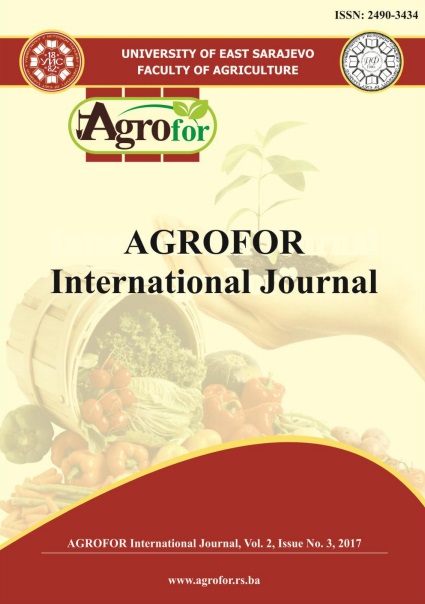A VIEW ON THE UNINFORMED CONSUMERS TOWARDS QUALITY STANDARDS IN THE CONTEXT OF THE TTIP NEGOTIATIONS
DOI:
https://doi.org/10.7251/AGRENG1703044PAbstract
Radio broadcasts, TV shows and online media make a significant contribution to
day-to-day consumer information and have a great impact on public opinion. The
present study provides an overview of the German reporting about the quality
standards of the agri-food industry in the context of the negotiations towards a EUUS
Transatlantic Trade and Investment Partnership (TTIP). On the basis of a
guided empirical content analysis, 436 publications released via radio, TV or
Internet in the period from June 2013 to December 2016 were quantitatively and
qualitatively analyzed. The quantitative analysis showed that the agri-food industry
was generally of minor relevance in the coverage of TTIP, but focused mainly on
quality standards. The term ‘quality and consumer protection standards‘ frequently
appeared in the reportings with the topics such as genetic modification, use of
hormones, antibiotics or pesticides and the ‘chlorine-washed chicken‘. These are
not standards for official definition of the general food law. It was established that
all publications lacked information about specific standards. Thus, the quantitative
analysis showed a superficial view of quality standards with only symbolic
characteristics. The results of the qualitative media analysis indicated a negative
picture of the effects of TTIP concerning the agri-food sector and its standards.
Due to the complex structure of the globalised agri-food chains, the importance of
comprehensive consumer information was highlighted. Overall, German media
failed to provide scientifically based information. Unfortunately, they just
highlighted the possible negative changes which could be caused by TTIP.

